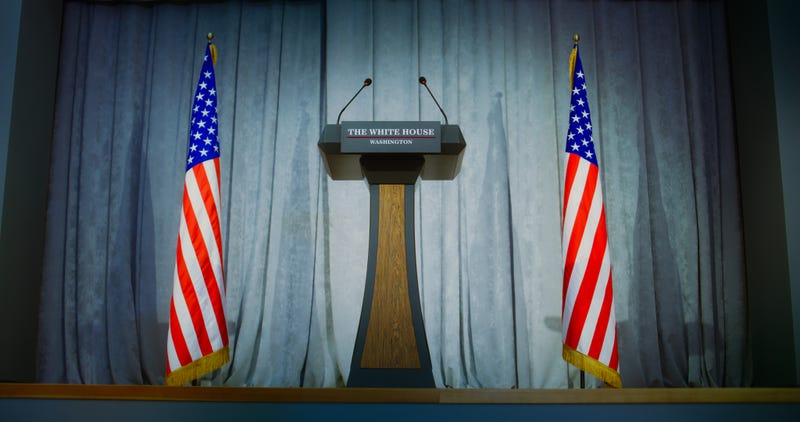
In these politically charged times, many Americans are hesitant to talk to their neighbors, co-workers or even family members about the upcoming presidential election; even a simple conversation can become complicated or can risk blowing up with hostilities.
When it comes to talking about politics with their kids, it can be difficult to know where to start.
“Teens especially are likely hearing from others or seeing online what’s going on politically in this country and it’s important to help them process all of it,” said Brandon Jones, psychotherapist, executive director of the Minnesota Association for Children’s Mental Health and host of the “It’s Not Your Fault” podcast on the ShelettaMakesMeLaugh.com podcasting platform.
In just the last several weeks, teens, like other Americans, processed a presidential debate filled with vitriol.
Then they watched images and video of an assassination attempt on former President Trump and learned details of the death of an innocent bystander and serious injuries of two additional men in the crowd.
One week later, President Joe Biden dropped out of the presidential race.
This election season can be described in many ways, but predictable, simple and respectful are not among them. That’s why Jones is hearing from parents and caregivers who seek guidance on how to talk to teens about these uncertain and unprecedented events.
Keeping the channels of communication open is critical, he said.
“We have social media pressures, peer pressures and global events all taking place in our kids’ lives and it can be overwhelming. So it’s important to help them navigate these turbulent times,” said Jones.
The father of three young daughters himself, Jones practices what he preaches. He knows that kids and teens pay attention to what they see from the adults in their lives and reminds parents to model healthy living, communication and coping mechanisms.
Jones offers six tips for approaching conversations with the young people in their lives and their homes.
Create an open and safe space for conversation
“The comfort level is going to be different for everyone. You want to make sure the young people in your life feel safe enough to have conversations with you,” said Jones.
Listen actively to decipher what your teen is saying — or not saying.
Sometimes young people don’t have the words to articulate what they are feeling. Parents should use their parental “Spidey Sense” to pick up on those emotions and validate the child’s feelings.
“If they don’t know, they don’t know. If they’re angry, honor that. If they’re indifferent, that’s okay too,” Jones added.
Encourage healthy social media habits
With so much online content circulating in this election cycle, with a deluge of memes, video clips and commentary, parents should limit these messages and also promote the value of neutral or positive content.
“Give suggestions on people or outlets you think provide a healthy perspective on the election,” he said.
Teach stress management techniques
“Always equip young people with the ability to handle their stress effectively. This is something we need to do in general as human beings to maintain a healthy mind,” he advised.
Jones suggested three options for building lifelong habits that handle stress: mindfulness in the form of meditation or prayer, physical activity, and journaling, which today includes options beyond pen and paper.
“These days you can record yourself on video or audio. They even have Artificial Intelligence (AI) devices you pin to your shirt and it takes notes as you talk.”
Engage in sustainable wellness
Leaning how to be proactive with self-care can begin in childhood. Healthy eating, getting adequate sleep and identifying hobbies and interests that bring pleasure are all simple but important habits to develop.
“If people just focused on these things we could alleviate a lot of stress and pain.”
Recognize Signs of Distress
Be vigilant when significant changes in behavior are noticed. Signs to look for include: Withdrawal: Are they not engaging as they normally would? Mood swings: Are they just flying off the handle? Dips in academic performance
Jones acknowledges that helping young people process politics and be a delicate balance. He said that when in doubt, take on the strategy of many winning campaigns and candidates and simply be a good listener.
